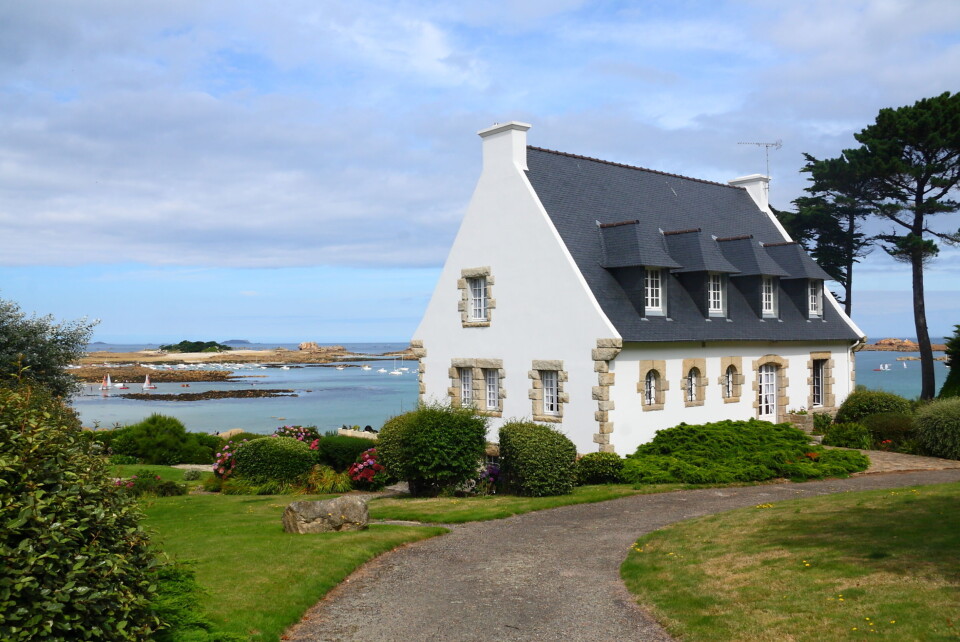-
Property prices rising in France but buyers still negotiating
New figures suggest that it is still a ‘buyer’s market’ - but this may not last
-
See how long it takes to sell a property in France by area in 2025
Some major cities have seen a significant increase in time to finalise a sale in comparison to 2024
-
Covid-19 tests are still reimbursed in France - but not for long
Reimbursement for most will stop after the epidemic season, but some have criticised the move
House prices: smaller towns in France are ‘Covid effect’ winners
The pandemic has turned the property market upside down. Areas of west France as well as along coastlines have seen some of the biggest rises

France’s housing market hit record levels in 2021 and estate agents have Covid-19 to thank.
People could not stand the cramped conditions in cities during the confinements, said Century 21-France president Laurent Vimont.
Many, especially those able to work from home, looked to leave cities for smaller towns and rural areas, where prices are lower.
Emmanuel Cousson, of Grand’ rue agency in Poitiers, said the Covid effect saw professionals from Paris and Bordeaux flock to his city because it sits on a TGV high-speed train line.
Prices adjusted to the demand – “a rise of 10%-20% last year, depending on the property”.
Read more: MAP: How have property prices changed across France in 2021?
This had not, however, caused any general cost-of-living hike.
An all-time high of 1.2 million non-new-build homes and flats were sold in 2021, a 12% increase over 2019 (1,067,000).
Prices increased almost everywhere: 8.1% nationwide in house sales, and 6.1% for flats, according to the Fnaim federation of French estate agents.
It said the west and coastal areas were the biggest winners.
Nouvelle-Aquitaine saw a 13.2% increase in house prices, while in Brittany flats soared 21.4%. Except for Paris, prices increased 6.7% on average in the country’s 10 major cities.
Fnaim president Jean-Marc Torrollion said: “Prices in the capital are stagnating, while those in provincial towns skyrocket.”
Even so, Paris still has the highest price per square metre today at an average €10,985, he said. It means France outperformed the UK in some areas.
Official UK figures show property prices rose 10% on average in the year to November 2021, the biggest increase since 2006.
Although it is being called de-métropolisation, Mr Torrollion said it might be too soon to speak of an “urban exodus”.
However, he said it is undeniable that people in France are turning towards the periphery of big cities, and medium-sized towns and rural areas.
“They prefer to enjoy bigger spaces and be closer to nature, even if it means longer commutes.” Xavier Timbeau, of the OFCE economic observatory, said the pandemic has given some families money to spare.
“Lockdowns prevented the more well-off classes from doing their usual activities,” he said.
“They did not buy cars, go to restaurants or on holiday. They found themselves with a lot of savings and bought property.”
Historically low interest rates have also made it easier. Mr Torrollion said the French see la pierre (property) as a reliable and perennial investment.
“Property, among the assets with the least volatility, has established itself as a safe investment, with returns much higher than most other forms of investment.”
Having said that, the price rises are not good news for those trying to get on the property ladder.
“Low-income families and young people are being excluded from the market by the higher prices,” said Mr Vimont.
They are having to buy smaller homes or move further away from cities, he said.
As prices rise, so do down-payments on houses, which Century 21 says average 13% of the purchase cost.
The typical deposit in the second half of 2021 was €32,153 for a €247,499 property.
Related articles
Why rental prices across France are set to rise in 2022
Where do you find the cheapest second homes in France?
Price of new properties reaches all-time high in France
























